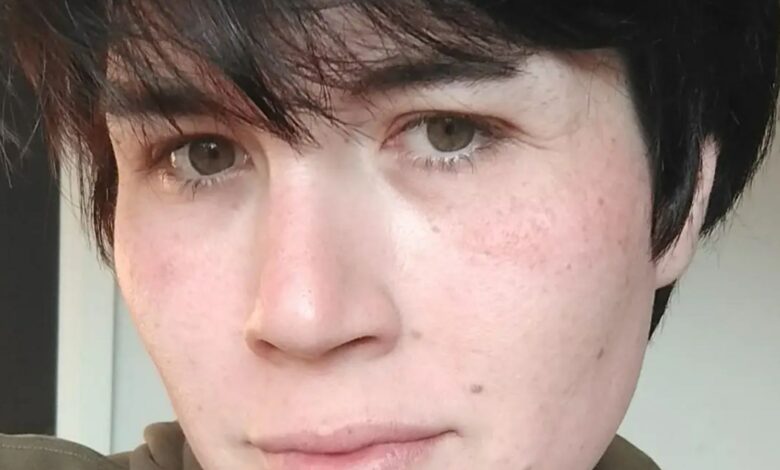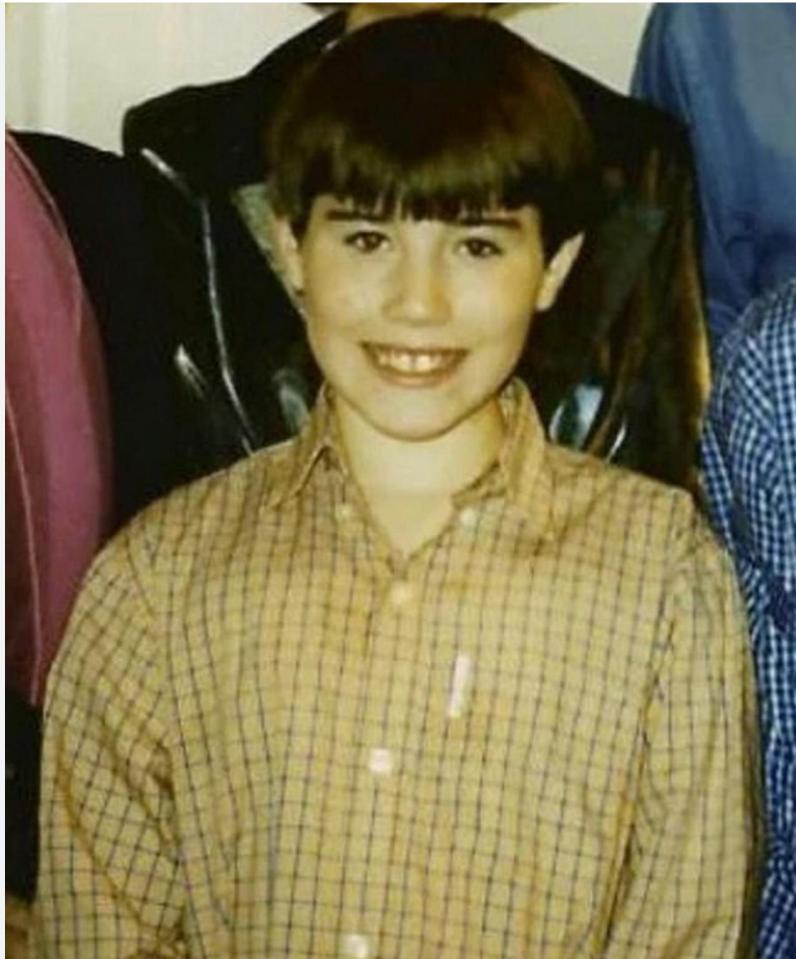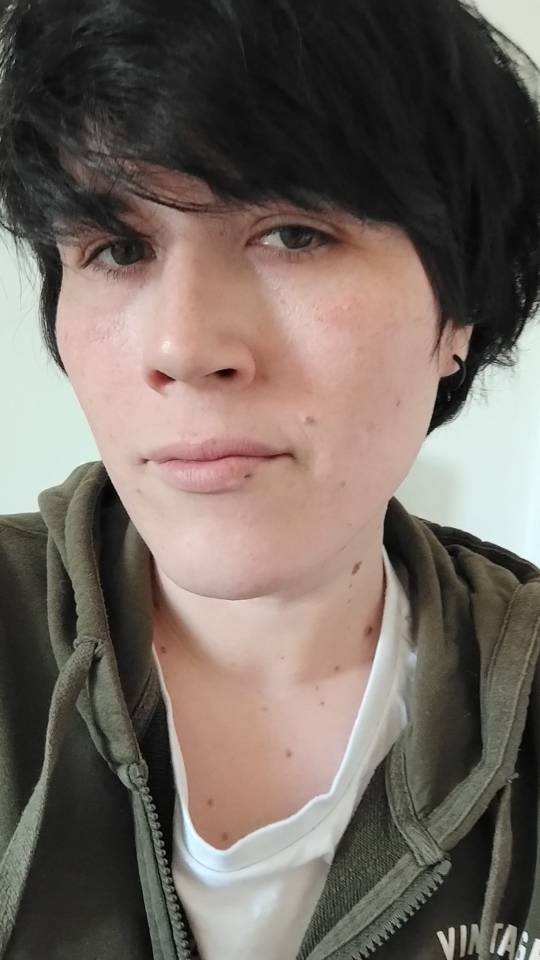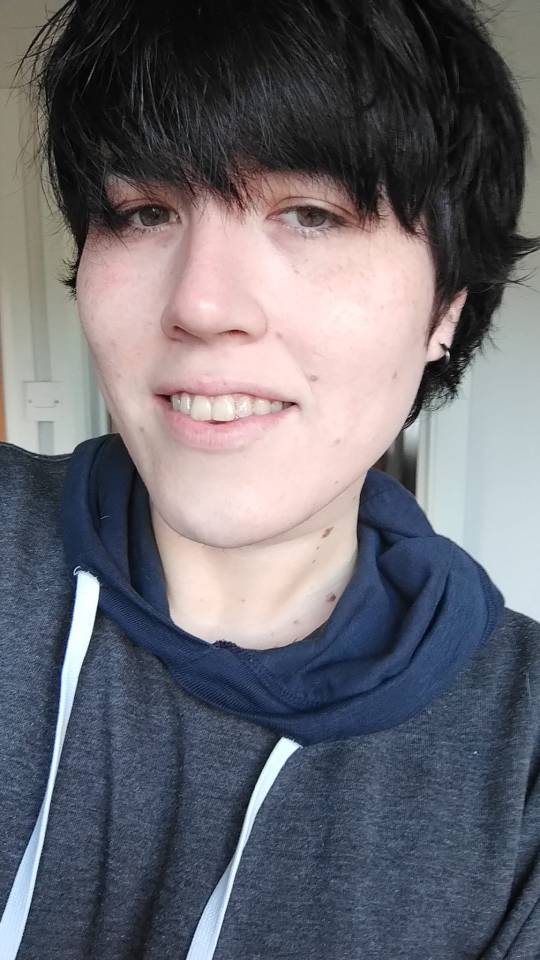I changed gender and immediately regretted it – I now live as a castrated man





RITCHIE HERRON lives in pain.
He struggles with incontinence, weakened bones, a numb groin and suicidal thoughts.
But the 35-year-old’s symptoms are not the result of a genetic disorder or disease.
In fact, they were completely avoidable.
Ten years ago, Ritchie, who was born male, had two 30-minute medical appointments that resulted in a diagnosis of transgender [trapped in the wrong body].
An NHS gender clinic referred him for surgery to remove his genitals.
READ MORE ABOUT TRANS RIGHTS
Ritchie says he had serious reservations before the surgery and now regrets it.
Ritchie, who is gay, is part of a growing group of detransitioners: people who regret their gender surgeries.
The demand for detransitioning is so great that the NHS announced this month that it will launch a new service for patients who want to revert to their birth gender.
Ritchie finally feels like his concerns are being taken seriously.
He says, “I regret having this procedure. I regret having that surgery and I regret trusting the people who recommended it to me.
“It’s less about doing the impossible and undoing the undoable. It’s more about improving the quality of life for those who have been harmed by the previous surgeries.”
For him, this would mean that urination would no longer be painful, that he would no longer suffer from constant infections and that he would receive the right guidance in terms of hormones and aftercare.
Love bombardment
He adds: “I understand that you can’t restore what’s been lost; there’s no going back with this. But we’re not solving these problems in the way you would expect, with the pain, and especially the psychological side.”
As a child, Ritchie suffered from severe obsessive-compulsive disorder, autism and frequent panic attacks.
He was bullied at school and increasingly sought refuge online.
“The problem is,” he tells me from his home in Newcastle, “I’ve found some really dodgy websites and there are a lot of predators hanging around.”
I had been hiding the fact that I was homosexual, even from myself, and suddenly it became clear that I was actually a woman
Ritchie
After years of repressing his homosexuality, Ritchie came across a website about “gender dysphoria” and became convinced that he wanted to become a woman.
He began posting pictures of himself online and soon began receiving love letters from many older men, some in their fifties.
Ritchie explains: “I had been hiding the fact that I was gay, even from myself, and suddenly it became clear that I was actually a woman.”
But when he started having suicidal thoughts at age 24, he went to his doctor.
Ritchie now knows he had post-traumatic stress disorder, but at the time all he knew was that he felt really bad.
He claims he was diagnosed as transgender without his mental health issues being explored or treated.
The NHS waiting list was long, so in March 2014 he took out a loan to go to a private clinic, where he could get a formal diagnosis and access hormone medication and surgery.
He was offered two 30-minute assessment appointments.
The psychiatrist’s initial advice was for Ritchie to take testosterone blockers. These drugs reduce male features, such as facial hair.
He was then recommended surgery.
Ritchie says: “I was very vulnerable.”
In March 2015 he was a patient at the NHS Gender Clinic in Newcastle.
He says: “The first question you get there is, ‘Do you want genital surgery?’ I wasn’t sure. But I had heard that you could get therapy if you were on the waiting list for surgery, so I said yes.”
Four months later he was referred for a vaginoplasty [surgery to remove the male genitalia to create a vagina].
He declined surgery because he wasn’t sure, but he continued therapy because it was “a lifeline” for him.
In 2017, another referral for surgery took place.
This time, Ritchie was told that if he refused the offer, he would be dismissed from service.
It sent him into a downward spiral.
He says he was persuaded to have the operation without really thinking about what it would entail.
When Ritchie was wheeled into the operating room in May 2018, he realized he had made a mistake.
He says the results of the “gender affirming treatment” immediately worsened his mental and physical health.
Six years later, Ritchie’s post-surgery scars are still visible, it takes him ten minutes to urinate and he has virtually no sexual function.
Hormone blockers have damaged his bones.
Ritchie considers himself a victim of “experimental surgery”.
He explains: “Just because it’s an amputation that’s been performed for decades doesn’t mean it’s sophisticated.
“It’s still experimental.”
Ritchie’s expectations of the NHS’s recently announced detransitioning service are muted.
Suddenly we have this community of people who are going to lovebomb us and affirm us. They are not going to challenge us. And of course you don’t want to lose that.
Ritchie
He emphasizes that he ‘does not want to be referred for another series of operations’.
He says, “I just want to minimize the pain and suffering that I experience.
“Hopefully there are other procedures that can help with what I have, rather than going down another experimental route.”
Best interests
Ritchie adds: “It’s obviously very emasculating not to have male genitals.
“One of my doubts about taking a full dose of testosterone is that I’m hesitant because… what am I turning into?
“I’ve already castrated myself and it’s like, I don’t want to go bald and grow a beard and stuff like that and I don’t have anything. It doesn’t look good right now.”
Ritchie believes there should be an immediate ‘pause in all these operations and a systematic review of the data’.
He adds: “Not just the people who fill out surveys six months after surgery, but what does the longitudinal data say?”
He points out that many patients were extremely depressed and isolated before transitioning.
Ritchie says: “Suddenly we have this community of people who are going to lovebomb us and affirm us. They’re not going to challenge us. And you don’t want to lose that. [community]”.
Ritchie wants more protection.
He says: “My case is a good opportunity to clarify that. The detransitioners have a role to play in the trans debate, because a lot of people haven’t been listened to and they are very angry.”
He fears that young people in transition will not have the confidence to fight for their care as he did.
Ritchie says, “They’re very lonely.”
Meanwhile, he worries about what the future will look like for those who have decided to make the transition.
He says: “On paper the transition sounds brilliant, but in reality it is not comparable at all. And how you feel in the first year can change over time.”
Ritchie warns: “I don’t want you to do what I did and just assume that [the clinicians] “Have your best interests at heart.”
Today, this brave activist is looking ahead and is in a happy relationship.
He says: “I have a partner who is very understanding.
“Relationships are more than just sex, but I’m not going to deny that it’s not a big part of it.
“And I’ve accepted that I lose a lot of my fun because of this.
“I just don’t have it. But I get a lot of benefit from being with him and seeing his enjoyment.”
While Ritchie still mourns his former body, he says, “I will always see myself as a man.
“I’m fine with being a little bit androgynous.
“I am a castrated man, but I am still a man.”
The NHS Gender Clinic in Newcastle was asked for comment.







